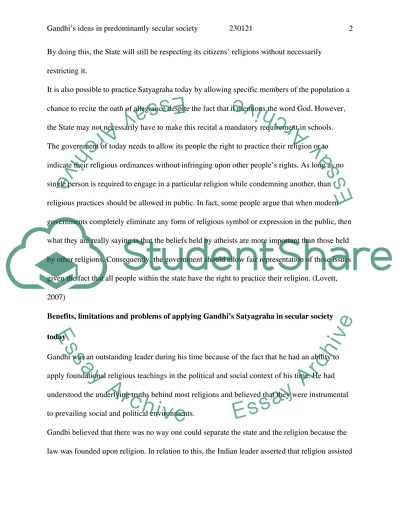Cite this document
(“Gandhi Teachings Essay Example | Topics and Well Written Essays - 1250 words”, n.d.)
Gandhi Teachings Essay Example | Topics and Well Written Essays - 1250 words. Retrieved from https://studentshare.org/miscellaneous/1507593-gandhi-teachings
Gandhi Teachings Essay Example | Topics and Well Written Essays - 1250 words. Retrieved from https://studentshare.org/miscellaneous/1507593-gandhi-teachings
(Gandhi Teachings Essay Example | Topics and Well Written Essays - 1250 Words)
Gandhi Teachings Essay Example | Topics and Well Written Essays - 1250 Words. https://studentshare.org/miscellaneous/1507593-gandhi-teachings.
Gandhi Teachings Essay Example | Topics and Well Written Essays - 1250 Words. https://studentshare.org/miscellaneous/1507593-gandhi-teachings.
“Gandhi Teachings Essay Example | Topics and Well Written Essays - 1250 Words”, n.d. https://studentshare.org/miscellaneous/1507593-gandhi-teachings.


